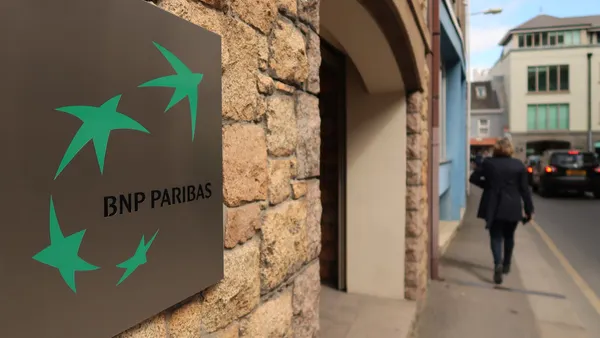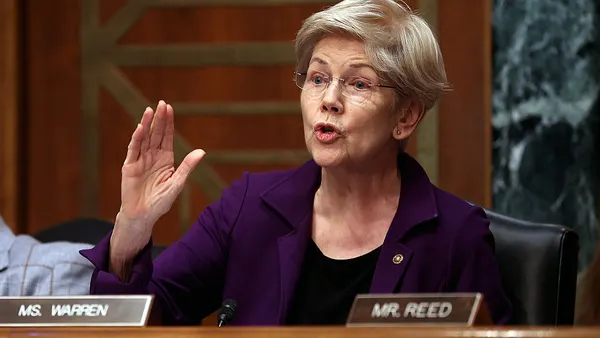Dive Brief:
- Comerica’s next chief risk officer, Kristina Janssens, began work in her new role Friday.
- Janssens had served as the Dallas-based bank’s chief compliance officer since September 2023. Comerica announced her promotion Sept. 16.
- Comerica’s previous risk chief, Brian Goldman, left the bank in May to serve the same role for San Antonio-based USAA. Comerica’s chief credit officer, Melinda Chausse, had been working as interim risk chief before Janssens’ promotion.
Dive Insight:
Janssens had worked at Flagstar for nine years – as deputy general counsel, and then as chief compliance officer – before joining Comerica in 2023, according to her LinkedIn profile.
As chief risk officer, Janssens will report directly to Comerica CEO Curt Farmer.
Among risk-related challenges Comerica is facing, the Office of the Comptroller of the Currency in April 2024 discovered unsafe or unsound practices related to risk governance framework and internal controls. The regulator hit a Comerica subsidiary with an enforcement action, ordering it to establish a compliance committee and maintain adequate board oversight and a corporate governance program.
That order appeared to be the culmination of an issue within the bank’s trust unit related to a wealth management technology platform upgrade, analysts said. In December 2023, The Wall Street Journal reported that the OCC was scrutinizing a wealth management platform change Comerica made in May 2023, after the technology update resulted in widespread transaction errors and the bank overdrawing its own accounts by millions of dollars.
The OCC also told the bank to adopt a program to assess and manage third-party relationship risks, enhance its internal audit program and bolster internal controls. The bank also agreed to establish a program designed to mitigate risks related to information technology assets.
Also last year, Comerica told investors it would no longer serve as the Treasury Department’s bank partner for its Direct Express prepaid card program, a role it had held since 2008. Comerica found itself in hot water after it allowed a third-party vendor, i2c, to field fraud disputes and handle cardholder data from an office in Pakistan, when the Treasury Department required all Direct Express services be provided in the U.S. or its territories, American Banker reported.
Comerica still managed the program as recently as two weeks ago. The Treasury Department chose BNY to manage the program beginning last January but discontinued that agreement over “readiness challenges involving one of the providers,” according to a bank spokesperson. Fifth Third signed a five-year agreement with Treasury to be the financial agent and issuing bank for Direct Express starting this month.
The Consumer Financial Protection Bureau, under the Biden administration, began investigating Comerica’s handling of the Direct Express contract, which prompted the bank to sue the regulator last November, calling the probe “aggressive and overreaching.”
The CFPB, a month later, filed a lawsuit against the bank stemming from that investigation, charging the bank with “systematically failing” 3.4 million federal benefits recipients who held Direct Express prepaid cards with intentionally poor customer service and illegally harvested junk fees.
Under the Trump administration, the CFPB dropped its case against the bank – although without prejudice, meaning the regulator could refile the lawsuit.
In recent months, Comerica has faced activist investor pressure to sell. At a conference this month, Farmer said he has flagged expenses related to real estate, headcount, technology and third parties as areas the Dallas-based company may trim, as it works to improve its efficiency ratio.













